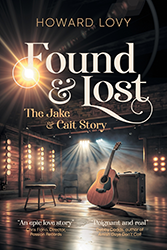Very early in Esther Chehebar’s Sisters of Fortune, bride-to-be Fortune Cohen finds herself with some unexpected time on her hands. She decides to curl up with one of her older sister’s books, Jane Austen’s Pride and Prejudice.
With that minor detail, Chehebar practically invites comparisons between her lively, heartwarming debut novel and Jane Austen’s masterpiece of romantic comedy. One of Chehebar’s early, enthusiastic readers even described her as a “Jewish Jane Austen.”
While Austen’s comedy of manners followed the fortunes of the five Bennet sisters in rural England at the turn of the nineteenth century, Chehebar sets hers in the gossipy, tight-knit Syrian Jewish community in Brooklyn in the early 2000s, where the three Cohen sisters — Nina, Fortune, and Lucy — are wrestling with a lot of momentous decisions.
With her wedding looming in two months, Fortune, the obedient middle sister, is starting to question her engagement to respectable but dull Saul Dweck. Not only is there no chemistry, but Fortune is not sure she is ready to fully embrace the life mandated by her Orthodox Jewish community, succinctly summed up by her beloved Sitto, or grandmother, like this: “There are only two things in a woman’s life that should never be kept empty: her womb and her freezer.”
Then there is the oldest sister, Nina, the rebel of the family. Nina is stubborn, disrespectful, and, at age twenty-six, still single, which means practically over the hill in this tradition-bound neighborhood of Midwood. Rounding out the trio is Lucy, a senior at her yeshiva high school, and “too beautiful to rebel,” according to Fortune. Lucy is secretly dating a tall, dark, and handsome doctor — the scion of a family wealthier than the Cohens and more than a decade older than her.
Chehebar — a contributing writer at Tablet magazine, where she covers the Sephardic Jewish community — knows this insular world well. She captures its joys and sorrows, its quirks and its customs, with vivid, often humorous details, from the classes girls take after they get engaged about when they can and cannot have sex to the proper appearance of a mouth-watering knafeh.
Suspense mounts as Fortune’s doubts about Saul grow, culminating in an epiphany of sorts during her pre-marriage mikvah immersion. Misfit Nina finally lands a job at a company that suits her: an indie rock label in Bushwick where she just happens to reconnect with Steven, a nice Jewish guy from her past. Even Lucy, the most confident and carefree of the three, has troubles to contend with. She worries that she won’t be able to keep up her end of the conversation when she and her dreamboat David get together with his fancy college-educated friends. Despite all the tumult, Chehebar deftly resolves the different story lines with a birth, a death, and platters upon platters of delicious Middle Eastern food.
Ann Levin is a writer, book reviewer, and former editor at The Associated Press. Her memoir and nonfiction have been published in numerous literary magazines and she has read her stories on stage with the New York-based writers group Writers Read.





